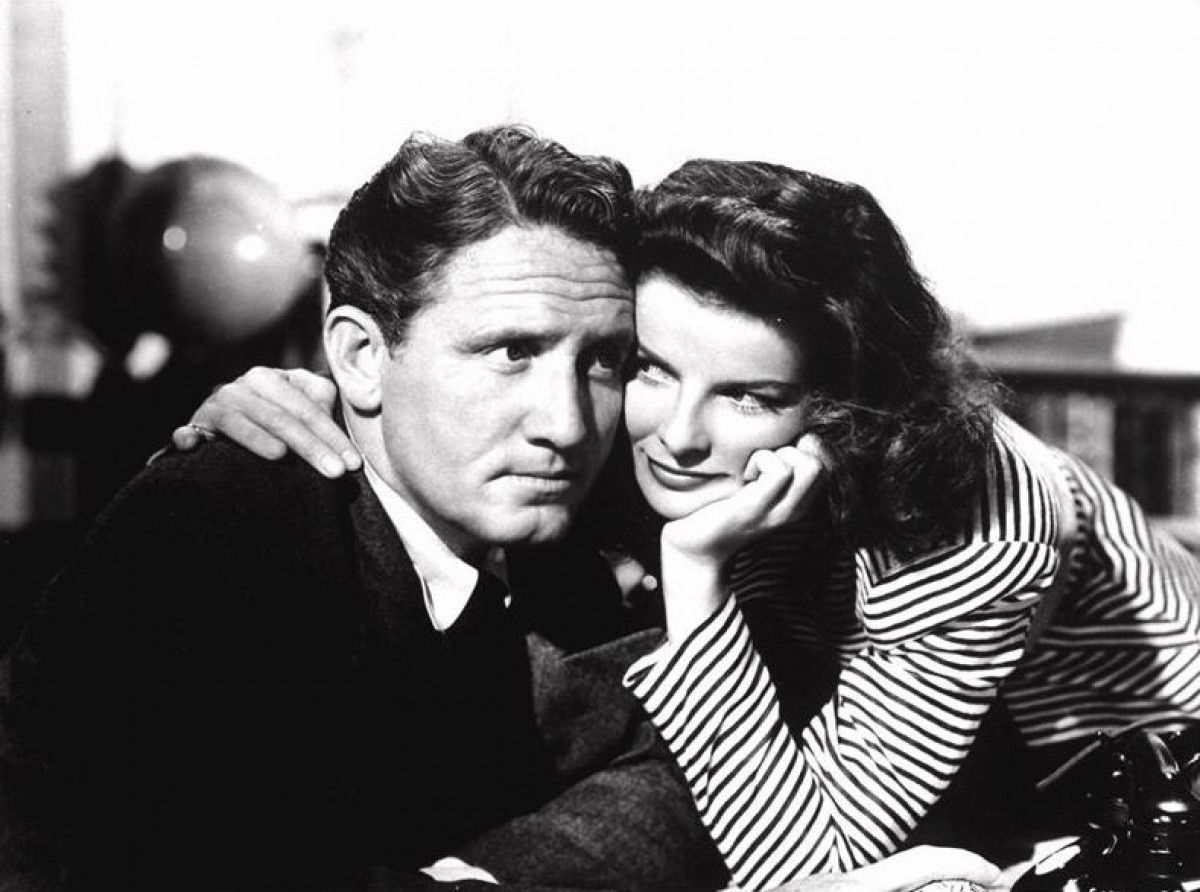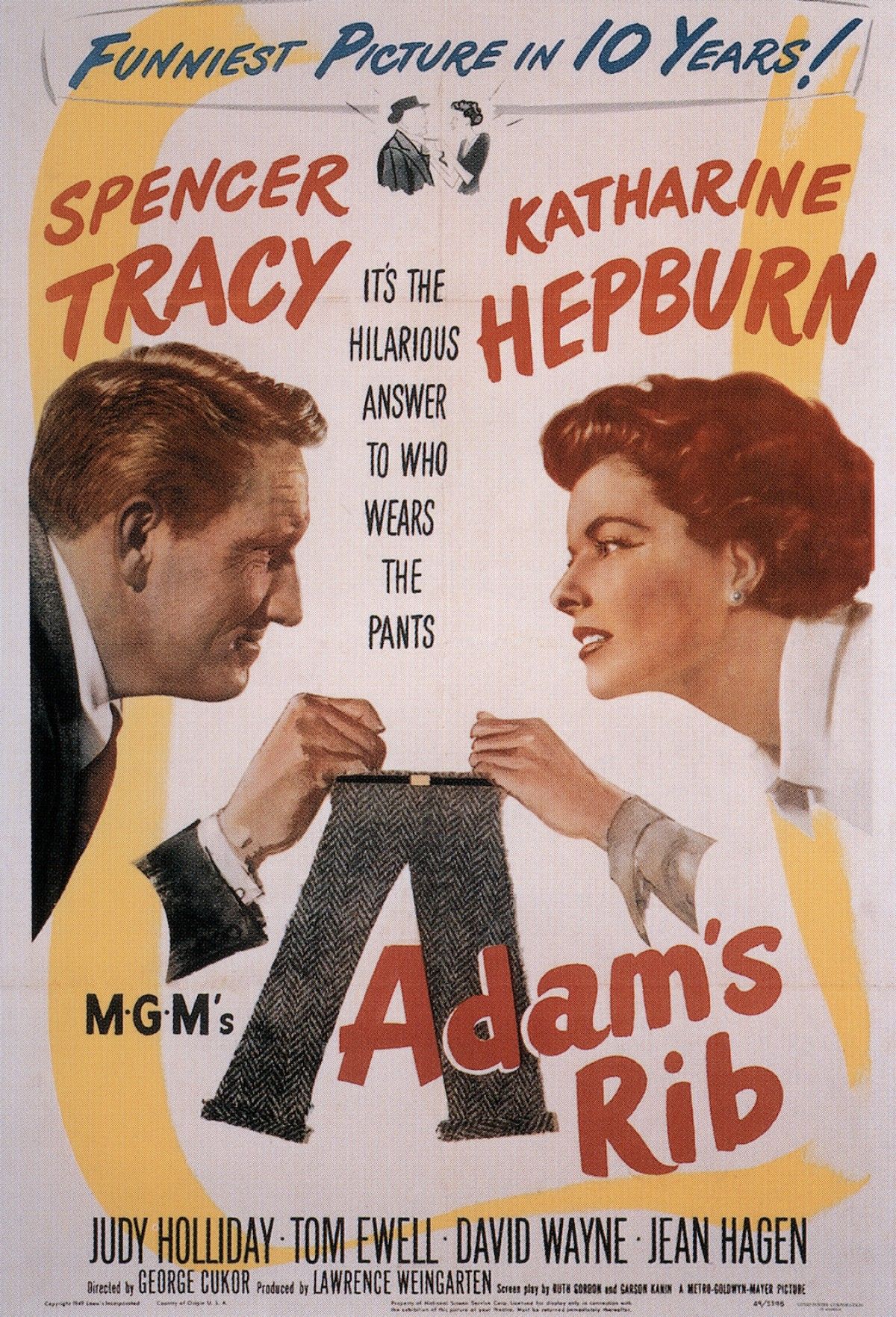La relació sentimental entre Katharine Hepburn i Spencer Tracy va ser durant vint-i-cinc anys un secret en veu alta, que no es va confirmar mai oficialment en vida d'ell. Divuit anys després de la mort de Spencer Tracy (5 d'abril de 1900, Wisconsin - 10 de juny de 1967, Califòrnia), Katharine Hepburn li va escriure una carta. L'actriu la va llegir davant la càmera per al documental The Spencer Tracy Legacy. A Tribute by Katharine Hepburn. Recordem l'actor recuperant el vídeo i reproduint el text tal com apareix a l'autobiografia de Hepburn, Me: Stories of My Life.
Estimat Spence,
Qui hauria pensat que jo t'estaria escrivint una carta. Vas morir el 10 de juny del 1967. Caram, Spence, fa divuit anys. Això és molt de temps. Ets feliç finalment? Estàs descansant? Et deu compensar de totes les voltes al llit que vas fer en vida. Saps què, mai et vaig creure quan deies que no podies adormir-te. Pensava au va, tu dorms, si no dormissis estaries mort. Estaries esgotat. Però recordo aquella nit en què estaves tan nerviós. Et vaig dir va, vés al llit. I m'ajauré a terra i parlaré fins que t'adormis. Parlaré i parlaré i t'avorriràs tant que no tindràs altre remei que adormir-te.
Bé, vaig entrar a dins i en vaig agafar un coixí vell i el gos Lobo. Em vaig estirar allà mirant-te i acariciant el gos. Et parlava sobre tu i sobre la pel·lícula que tot just havíem acabat –Endevina qui ve a sopar– i sobre el meu estudi i sobre el teu abric nou i sobre el jardí i tot de temes que feien venir la son, i sobre cuina i xafarderies, però no vas parar de llançar els coixins, fins que finalment et vas calmar. Vaig esperar una estona i vaig arrossegar-me cap a fora.
M'havies dit la veritat, oi? Realment no podies dormir.
I jo em preguntava per què. Encara m'ho pregunto. Et prenies les pastilles, eren bastant fortes. Suposo que diries que si no fos per les pastilles no hauries dormit mai en absolut. Viure no era fàcil per a tu, oi que no?
Què t'agradava fer? T'encantava navegar, sobretot quan feia tempesta. T'agradava el polo. Però aleshores Will Rogers es va morir en aquell accident d'avió, i tu no vas jugar a polo mai més. Tenis i golf, no. Natació? No t'agradava l'aigua freda. Caminar? No, no encaixava amb tu. [...]
I el més increïble. Eres realment el millor actor de cinema del món. Ho dic perquè m'ho crec i perquè he sentit dir-ho a molta gent del negoci. Des d'Olivier fins a Lee Strasberg passant per David Lean. Et proposaves una cosa i la feies. I ho feies amb aquella gloriosa simplicitat teva, tan directa: ho feies i ja està. No podies entrar a la teva vida, però podies esdevenir qualsevol altre. Eres un assassí, un capellà, un pescador, un periodista esportiu, un jutge, un reporter de diari. Ho eres a l'instant.
Gairebé no havies d'estudiar. T'aprenies els guions en un temps sota zero. Quin alleujament! Podies ser algú altre durant una estona. No eres tu –estaves salvat. T'agradava riure, oi? No et perdies mai aquests còmics: Jimmy Durante, Phil Silvers, Fanny Brice, Frank McHugh, Mickey Rooney, Jack Benny, Burns and Allen, Smith & Dale, i el teu preferit, Bert Williams. Històries divertides: en podies explicar –i de forma brillant. Podies riure de tu mateix. Apreciaves molt l'amistat i admiració de gent com els Kanin, Frank Sinatra, Bogie & Betty, George Cukor, Vic Flemming, Stanley Kramer, els Kennedy, Harry Truman, Lew Douglas. Eres divertit amb ells, et diverties amb ells, et senties segur amb ells.
Però tornem a les proves de la vida. Oh va, pren una beguda –no, sí, potser. Després paraves de beure. Eres bo parant, Spence. Podies parar. Com et vaig respectar per això. No és gens usual.
Tu deies, amb relació a aquest tema, que només estaries segur a set peus sota terra. Però per què et calia aquesta sortida d'emergència? Per què estava sempre oberta? Per fugir d'una persona notable com tu mateix?
Per què, Spence? T'ho volia preguntar. Saps per què?
Què dius? No et puc sentir...

Spencer Tracy i Katharine Hepburn el 1942 a «Woman of the Year», quan es van conèixer. Foto: Clarence Sinclair Bull/MGM
La carta original en anglès:
Dear Spence,
Who ever thought that I'd be writing you a letter. You died on the 10th of June in 1967. My golly, Spence, that's eighteen years ago. That's a long time. Are you happy finally? Is it a nice long rest you're having? Making up for all your tossing and turning in life. You know, I never believed you when you said that you just couldn't get to sleep. I thought, Oh —come on— you sleep —if you didn't sleep you'd be dead. You'd be so worn out. Then remember that night when —oh, I don't know, you felt so disturbed. And I said, Well, go on in —go to bed. And I'll lie on the floor and talk you to sleep. I'll just talk and talk and you'll be so bored, you're bound to drift off.
Well, I went in and got an old pillow and Lobo the dog. I lay there watching you and stroking Old Dog. I was talking about you and the movie we'd just finished—Guess Who's Coming to Dinner—and my studio and your new tweed coat and the garden and all the nice sleep-making topics and cooking and dull gossip, but you never stopped tossing —to the right, to the left— shove the pillows —pull the covers— on and on and on. Finally —really finally— not just then —you quieted down. I waited a while —and then I crept out.
You told me the truth, didn't you? You really could not sleep.
And I used to wonder then —why? I still wonder. You took the pills. They were quite strong. I suppose you have to say that otherwise you would never have slept at all. Living wasn't easy for you, was it?
What did you like to do? You loved sailing, especially in stormy weather. You loved polo. But then Will Rogers was killed in that airplane accident. And you never played polo again —never again. Tennis, golf, no, not really. You'd bat a few balls. Fair you were. I don't think that you ever swang a golf club. Is "swang" a word? Swimming? Well, you didn't like cold water. And walking? No, that didn't suit you. That was one of those things where you could think at the same time—of this, of that, of what, Spence? What was it? Was it some specific life thing like Johnny being deaf, or being a Catholic and you felt a bad Catholic? No comfort, no comfort. I remember Father Ciklic telling you that you concentrated on all the bad and none of the good which your religion offered. It must have been something very fundamental and very ever-present.
And the incredible fact. There you were —really the greatest movie actor. I say this because I believe it and also I have heard many people of standing in your business say it. From Olivier to Lee Strasberg to David Lean. You name it. You could do it. And you could do it with that glorious simplicity and directness: you could just do it. You couldn't enter your own life, but you could become someone else. You were a killer, a priest, a fisherman, a sportswriter, a judge, a newspaperman. You were it in an instant.
You hardly had to study. You learned the lines in no time. What a relief! You could be someone else for a while. You weren't you —you were safe. You loved to laugh, didn't you? You never missed those individual comics: Jimmy Durante, Phil Silvers, Fanny Brice, Frank McHugh, Mickey Rooney, Jack Benny, Burns and Allen, Smith and Dale, and your favorite, Bert Williams. Funny stories: you could tell them —and brilliantly. You could laugh at yourself. You enjoyed very much the friendship and admiration of people like the Kanins, Frank Sinatra, Bogie and Betty, George Cukor, Vic Flemming, Stanley Kramer, the Kennedys, Harry Truman, Lew Douglas. You were fun with them, you had fun with them, you felt safe with them.
But then back to life's trials. Oh hell, take a drink—no-yes-maybe. Then stop taking the drink. You were great at that, Spence. You could just stop. How I respected you for that. Very unusual.
Well, you said on this subject: never safe until you're seven feet underground. But why the escape hatch? Why was it always opened —to get away from the remarkable you?
What was it, Spence? I meant to ask you. Did you know what it was?
What did you say? I can't hear you…

